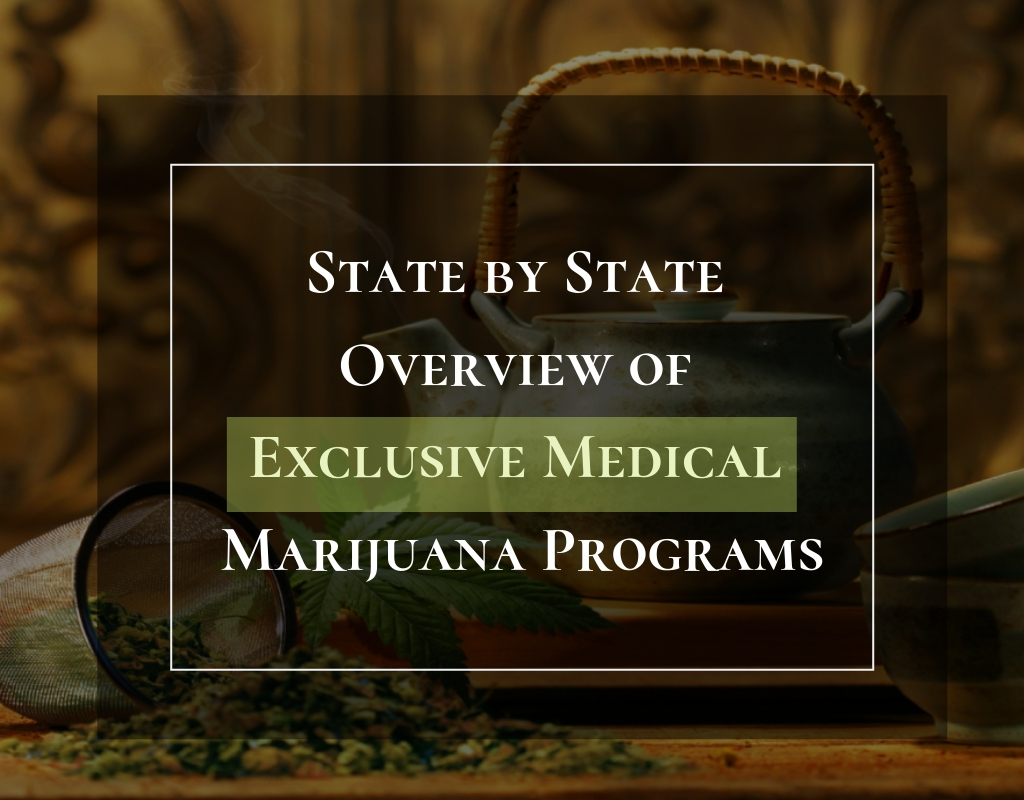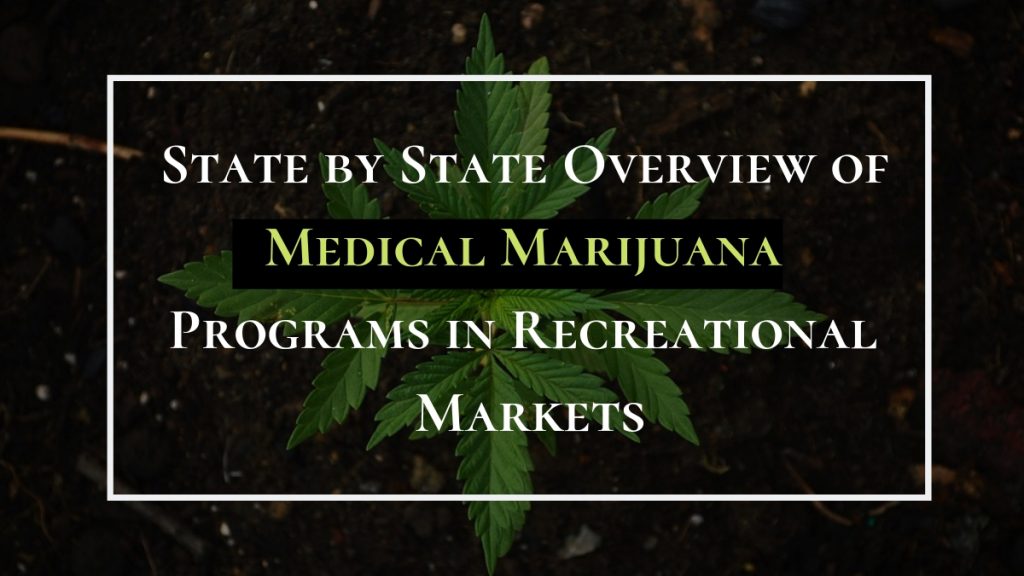The industry of medical marijuana has exploded across the United States and around the globe. Today there are 33 states that allow for medical marijuana and many others that permit the usage of CBD. Each of these different markets have their own set of rules and regulations but these markets also support the medical marijuana patients within their state. These states support medical marijuana despite the federal government’s prohibition of cannabis still in effect. With that in mind, states that have taken steps to support medical marijuana should be seen as early movers even if there are over half the states in the union with this early mover stance. With that in mind, let us dive in and take a closer look at these medical marijuana states and each of their differences.
Montana
The state of Montana offers patients a variety of different ailments to access medical marijuana. These include commonly seen ailments with medical marijuana programs in other states such as ailments like cancer, glaucoma, crohn’s disease, and even PTSD. Furthermore, patients have a great selection of products available to them including cannabis flower, concentrates, and edibles. The program has been around since 2011, making it one of the more recent medical marijuana programs in America.
Arizona
Another robust medical marijuana program comes from the state of Arizona. This medical marijuana program also allows a great deal of variety for patients with both qualifying conditions as well as products to consume. The program is heavily expected to expand into an adult-use one in the coming years. Finally, Arizona has been a medical state since 1996, making it one of the oldest medical marijuana markets in the country.
Read Also: How to get a Recreational Dispensary License in the United States
New Mexico
A longer standing program, passed by the government in 2007 exists in New Mexico. The purpose of the bill was to help those suffering, as noted by the governor at the time passed the bill. As expected with a program over a decade old, there are a host of medical ailments which patients can have to qualify for access to medical marijuana.
Oklahoma
Oklahoma may be the newest state with operational cannabis stores for medical patients. The state started with their medical marijuana program when it was voted into effect during a June 2018 ballot initiative. In the last six months since this vote passed, the state government has set up a robust medical marijuana program which has attracted hundreds of business owners to start operations there. Patients will soon have access to a great variety of cannabis including flower, concentrates, and thanks to new rules recently passed, edibles soon will be available as well.
North Dakota
A more conservative state on the list comes with North Dakota. The program is also just starting out, with stores not expected to open until 2019. The state offers a host of different medical ailments which patients can qualify for access to medical marijuana, with a complete list available here. While we should wait to see exact products become available from the North Dakota medical marijuana program, we can expect traditional cannabis flower to be an option readily available to patients.
Minnesota
A state which has been hit hard by the opioid crisis has had medical marijuana since passage of legislation by the state government in 2014. The program includes nine severe medical conditions to qualify for access. These include Cancer, glaucoma, HIV, ALS, seizure disorders, multiple sclerosis, crohn’s disease, and painful terminal illnesses. The program also added PTSD to the list in 2017.
Arkansas
The state of Arkansa, another more conservative state with medical marijuana implemented. Arkansas deployed a fairly inclusive medical marijuana program which allows patients with a host of ailments to access cannabis for their medical needs. These include most common ailments found on medical marijuana qualifying conditions and also includes rarer conditions such as PTSD and Ulcerative Colitis.
Louisiana
A house bill passed by the governor of Louisiana was signed in 2015. While the program, roll out has been fairly slow. Nonetheless, it is good to see a more conservative and southern state start the process of deregulated the cannabis plant for medical use.
Illinois
One of the largest states in America, Illinois passed regulation to start their medical marijuana program with a pilot in 2013. The pilot went well and started the cannabis program in the state. Lately, this program has been expanded to include qualifying conditions such as opioid addiction to help fight the opioid epidemic. Today the program has over 35,000 patients in it which enjoy the benefits of medical marijuana.
Ohio
Another state which has been hit extremely hard by the opioid epidemic in America, Ohio started their medical marijuana program in 2016 with the passage of a bill through the state legislature and finally signed by Governor John Kasich. The state offers a great variety of ailments which patients may have to qualify for access to medical marijuana. A complete list can be found online with ailments such as PTSD, intractable pain, fibromyalgia, cancer, and alzheimer’s disease included on the list.
Florida
The sunshine state of Florida, one of the top three biggest states in America, passed medical marijuana legislation in 2016 with a ballot initiative. Sadly, the implementation of this program has been long stifled by the former governor, Rick Scott. Furthermore, once passed, the program still restricted consumption to not allow for the smoking of cannabis flower which has angered many within the cannabis movement.
West Virginia
Passed more recently, the West Virginia medical marijuana program became officially part of the law in 2017. The program has a strict list of qualifying medical conditions in which patients have to have to access medical marijuana.
Pennsylvania
The Keystone state started their medical marijuana program in 2016 through a law passed by the state government. With it, the state has slowly but surely pushed ahead with the implementation of medical marijuana. The state offers a variety of ailments which patients may have to qualify for access to the medical program. These include epilepsy, glaucoma, opioid addiction, and many others with a complete list available on the state website.
Maryland
Maryland’s medical marijuana program offers patients a great variety of products. The program lists a number of qualifying conditions, as the program has been around since 2013. Furthermore, the program also lists a good variety of medical ailments which qualify for medical marijuana, with minor limitations
Delaware
The state of Delaware has a smaller subset of qualifying conditions but still it exists as one of the older cannabis programs in the country. The program was signed into law in 2011 to cover extremely harsh illnesses. Furthermore, patients in Delaware operate with a caregiver model (a model which is often supplementary to dispensaries) and allows individuals to grow cannabis for medical card holding patients rather than a dispensary growing all of a patient’s plants for them.
New Jersey
In 2010, outgoing governor Corzine signed a bill to legalize the medicinal use of marijuana for a handful of serious medical ailments. The program has slowly grown over the last decade. With that, there has been a large push to legalize cannabis in New Jersey for adult-use, something we expect to see the state legislature do sometime in the coming year.
New York
More recently in 2014, the state government in New York legalized the medicinal use of cannabis through a small program which awarded four growers access to supply the state’s cannabis. The state of New York is also having many conversations about legalizing the cannabis plant for adult-use within the coming years, perhaps to make sure their neighbor New Jersey does not reap all the rewards of a legalization effort.
Rhode Island
A state with a longer medical marijuana program comes from Rhode Island. Passed in 2004, the program has allowed for a variety of medical ailments as qualifying conditions. The state of Rhode Island allows patients to access a system of dispensaries, which are operated and regulated through in a similar manner to the grows, processors, and testing labs within the state.
Missouri
Missouri comes as state which has recently passed legislation to implement medical marijuana through a ballot initiative. The program will take a couple years to go into full effect but should be seen as a big step for the medical marijuana movement as a state in the midwest votes to pass medical marijuana.
Utah
Finally, Utah comes as another state which has recently passed legislation to implement medical marijuana. Again, these regulations will take a couple years to take full effect but again should be seen as a big victory for the nascent medical marijuana industry.
All and all, the medical marijuana programs across the country have exploded over the last few decades. While states have moved along the cause of medical marijuana, the federal government has not. With this in mind, the federal government still has more room to go with regards to medical marijuana. Still it has been a good sign to see so many states pushing more open cannabis regulations to assist with patient’s medical needs





